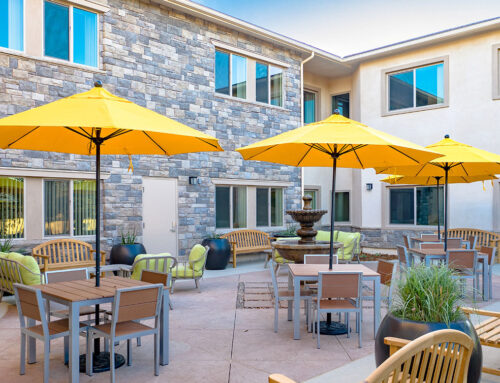Memory issues and forgetfulness can affect people in various ways. While some seniors may experience minor forgetfulness that does not significantly impact their daily lives, others may develop dementia, which can pose serious risks, especially if they live alone. It is crucial to understand the differences between these conditions when providing care for seniors of all ages.
What Is Dementia?
Dementia is an umbrella term for several health issues that affect cognitive function. Memory loss and impairment in at least one cognitive function, such as language skills, are common symptoms of dementia. When significant memory loss occurs, considering memory care for seniors becomes important.
What Are the Symptoms?
Identifying the symptoms of dementia can be challenging at the onset as they are often mild. However, these symptoms typically progress over time. Here are some common signs of dementia:
- Memory loss and poor judgment
- Trouble with language skills
- Difficulty handling money responsibly
- Repeating the same questions
- Slowness in completing tasks
- Getting lost in familiar places
- Experiencing hallucinations, paranoia, and delusions
- Lack of empathy
- Balance problems and frequent falls
Dementia can develop at any age, but it is more common after the age of 50. Recognizing the symptoms can be difficult for many seniors, as some mistakenly believe that dementia is a normal part of aging. Once diagnosed with dementia, seniors may require assistance from assisted living communities.
What Is the Difference Between Dementia and Simple Forgetfulness?
Simple forgetfulness is common and usually does not significantly impact a person’s life. On the other hand, dementia progresses slowly or rapidly depending on the type and individual. Dementia conditions generally have a dramatic impact on a person’s life. When memory loss becomes a serious problem due to dementia, seniors may require support in senior living communities.
Seniors should consult their doctors every six months when experiencing memory issues. Dementia requires extensive and ongoing treatment to slow the progression of cognitive decline. When living alone is no longer feasible, considering a senior living community becomes necessary. These communities provide a safe and enriching environment that promotes better physical, mental, and emotional health.
Is Dementia Preventable?
While there is no drug or lifestyle that can prevent dementia, there are steps individuals can take to reduce their risks. Consider the following preventive measures for preserving cognitive function:
- Reduce stress levels as much as possible, as stress can contribute to thinking problems in older adults.
- Regular exercise helps protect the body as a whole and keeps seniors healthy.
- Maintain a diet rich in antioxidants to preserve brain function and counteract oxidative stress caused by free radicals.
- Engage in regular social activities to keep the mind sharp and prevent depression.
- Schedule regular medical checkups, as they are critical for protecting brain function. Seniors are encouraged to see their doctors a few times a year.
- Engage in reading and other enriching activities to keep the mind active, which can play a role in cognitive protection.
- Seniors of all ages should maintain an active lifestyle to reduce the risk of anxiety, depression, and loneliness, all of which can contribute to cognitive decline.Â
The right care community can provide assistance to seniors at risk of developing dementia, offering an engaging atmosphere that promotes health and happiness.
When to See a Doctor
While minor memory loss is a normal part of the aging process, it should not become consistent. If memory loss problems worsen, prompt action is necessary. Dementia treatments can help slow the progression of brain damage and preserve cognitive function for a longer duration compared to without medication.
Diagnosing dementia involves an examination, blood work, and imaging. There is no single test for conditions like dementia and Alzheimer’s disease. Diagnosis is based on symptoms, health history, family history, and test results. Treatment for dementia will depend on the specific type and stage.
Finding a Living Community
When living alone becomes unsafe for seniors with dementia, finding the right community provides peace of mind. If seniors experience difficulties with eating, personal safety, or memory-related risks, it is time to seek help. Finding an appropriate living care community ensures the safety of seniors and engages them in daily activities with fellow residents. It’s important not to rush the decision-making process and to start searching for an appropriate community at the first signs of problems.
At Vista at Simi Valley, we strive to ensure our residents experience a safe, engaging, and inspiring daily life. Our beautiful community allows residents to breathe clean California air while participating in fun activities that foster a sense of togetherness. We provide the gold standard of senior living.





